第163章 CHAPTER XLIV.
The Aristocratic Republic of Genoa Offends the King.--Its Punishment.--Reception of the Doge at Paris and Versailles.
M. de Louvois--by nature, as I have said, hard and despotic--was quite satisfied to gain the same reputation for the King, in order to cover his own violence and rigour beneath the authority of the monarch.
The King, I admit, did not like to be contradicted or opposed. He became irritated if one was unfortunate enough to do so; but I know from long experience that he readily accepted a good excuse, and by inclination liked neither to punish nor blame. The Marquis de Louvois was unceasingly occupied in exciting him against one Power and then another, and his policy was to keep the prince in constant alarm of distrust in order to perpetuate wars and dissensions. This order of things pleased that minister, who dreaded intervals of calm and peace, when the King came to examine expenses and to take account of the good or bad employment of millions.
The Republic of Genoa, accustomed to build vessels for all nations, built some of them, unfortunately, for the King's enemies. These constructions were paid for in advance. M. de Louvois, well-informed of what passed in Genoa, waited till the last moment to oppose the departure of the four or five new ships. The Genoese, promising to respect the King's will in the future, sent these vessels to their destination.
On the report and conclusions of M. de Louvois, his Majesty commanded the senators of Genoa to hand over to his Minister of War the sums arising from the sale of these, and to send their Doge and four of the most distinguished senators to beg the King's pardon in his palace at Versailles.
The senate having replied that, by a fundamental law, a Doge could not leave the, city without instantly losing his power and dignity, the King answered this message to the effect that the Doge would obey as an extraordinary circumstance, that in this solitary case he would derogate from the laws of the Genoese Republic, and that, the King's will being explicit and unalterable, the Doge would none the less maintain his authority.
Whilst waiting, his Majesty sent a fleet into Italian waters, and the city of Genoa immediately sustained the most terrible bombardment.
The flag of distress and submission having been flown from all the towers, our admirals ceased, and the Doge set out for Versailles, accompanied by the four oldest senators.
At the news of their approach, all Paris echoed the songs of triumph that M. de Louvois had had composed. A spacious hotel was prepared to receive these representatives of a noble, aristocratic republic; and, to withdraw them from the insults of the populace, they were given guards and archers.
Although the chateau of Versailles was in all the lustre of its novelty, since it had been inhabited for only two years, I perceived that they had even been adding to its magnificence, and that everywhere were new curtains, new candelabra, new carpets. The throne on which the monarch was to sit surpassed all that we had ever seen.
On the eve of the solemn presentation the astonished ambassadors appeared incognito before the minister, who dictated to them their costumes, their reverences, and all the substance of their address. The influx of strangers and Parisians to Versailles, to be witnesses of such a spectacle, was so extraordinary and prodigious that the hostels and other public inns were insufficient, and they were obliged to light fires of yew in all the gardens.
In the great apartments there were persons of the highest rank who sought permission to pass the night on benches, so that they might be all there and prepared on the following day. On the two sides of the great gallery they had raised tribunes in steps, draped in 'Cramoisi' velvet. It was on these steps, which were entirely new, that all the ladies were placed.
The lords stood upright below them, and formed a double hedge on each side.
When his Majesty appeared on his throne, the fire of the diamonds with which he was covered for a moment dazzled all eyes. The King seemed to me less animated than was his wont; but his fine appearance, which never quits him, rendered him sufficiently fit for such a representation and his part in it.
The Doge of the humiliated Republic exhibited neither obsequiousness nor pride. We found his demeanour that of a philosopher prepared for all human events. His colleagues walked after him, but at a little distance.
When the Doge Lescaro had asked for pardon, as he had submitted to do, two of his senators fell to weeping. The King, who noticed the general emotion, descended from his throne and spoke for some minutes with the five personages, and, smiling on them with his most seductive grace, he once more drew all hearts to him.
I was placed at two paces from Madame de Maintenon. The Doge,--who was never left by a master of ceremonies, who named the ladies to him,--in passing before me, made a profound reverence. He then drew near Madame de Maintenon, who heard all his compliments, said to him, in Italian, all that could be said, and did him the honour to lean on his hand when descending from her tribune to return to the King's.
On the next day the Doge and senators came to present their homage to my children, and did not forget me in their visits of ceremony.